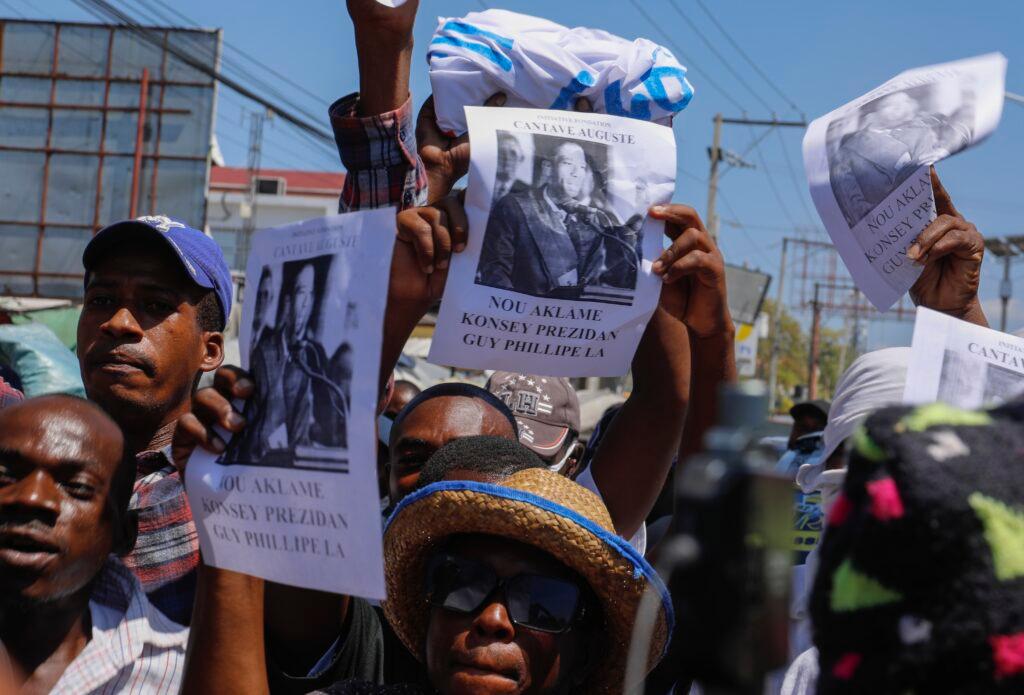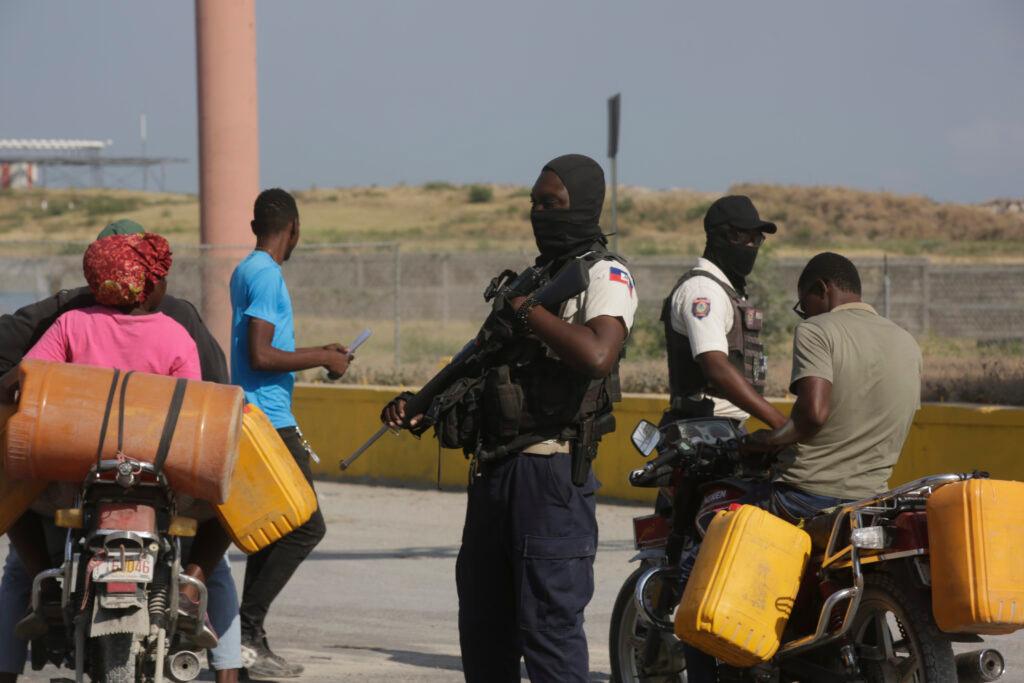The UN has warned the world that Haiti has reached the brink of collapse.
A transitional council has been created with the goal of stabilizing the country. But heavily armed gangs still control much of Haiti, and Port-au-Prince, the capital, remains unsafe.
Against that backdrop, the Biden administration has resumed deportation of Haitians who have run afoul of US immigration law.
Harold Isaac, an independent reporter based in Haiti, is following all of this and updated The World’s Carol Hills with the latest developments.
Carol Hills: We’ll get to the deportation issue in a moment. But what exactly is this transitional council for Haiti?
Harold Isaac: Well, it’s an experiment that the country is about to make. It has turned official in the last week. And now this seven-member presidential council has to be installed in the coming hours or days, somewhere this weekend or the next week.
So what is its mandate, and who’s serving on it?
Well, let’s put it this way: President Ariel Henry was the de facto head of state. But, if you went into any state offices, Jovenel Moïse’s portrait is still hanging on the wall in certain state offices. And this goes to show you how much of a political void there has been in the executive branch, for that long. In the meantime, the constitutional clock was still ticking, and you don’t have a parliament and the judicial branch is dysfunctional. So you really have a situation where people were like, “OK, anything that happens, something needs to happen.” After Premier Ari was, let’s say, prevented from coming back into the country, it kind of propelled us from a de facto government to a ghost government. So now Haitians just need whatever they can get their hands on, which is a government that will primarily have the mandate to restore security and deliver on elections. And that raises a really big “if.” Perhaps the best way to describe it is that it is some sort of national union government. A collective that will be in charge of delivering security and elections in the coming two years. Its term is set to expire on Feb. 7, 2026.

So, is the idea that it’s kind of an interim government, or is it a committee that’s come together to figure out a path forward?
It’s to be determined. Tensions within Haitian society are manifesting themselves in the establishment of this committee. On one hand, there are those who argue that it should be an opportunity to change the constitution. On the other hand, there are those who argue that Haiti should try to return to the constitutional order.
And who is serving on this transitional council?
So you have about seven various sectors plus an additional two. It includes political parties you could consider traditional parties in the country established, such as Lavalas. You have members of civil society, such as The Montana Accord group, which some people will label an opposition group. You have even members of the accord who were backing the former government, who are also included in that coalition.

Now, the US has just resumed deportations of Haitians. What kind of daily life are they returning to?
Well, it’s complicated for them. Normally, deportations are done over Port-au-Prince. However, in this specific case, the only operating international airport in Haiti right now is 250 kilometers up north, in Cap-Haitien. And that’s where the US has started their deportation. And if these folks, I’d say, were coming from the metropolitan area of Port-au-Prince, getting back into the city would be very complicated.
Now, I’m wondering about you. How are you able to even report you’re based in Port-au-Prince? Isn’t the situation there dangerous?
It is. It is absolutely dangerous. It is also a challenge to report daily. But, what I could say is that it is a reality for anybody who is living here, and they have to figure it out. You know, for those who have the option to leave, it’s almost become a duty to stay and to figure it out with friends and families that we have here. So, folks you talk to on the streets and offices, people you’re meeting at the supermarket … what they’re telling you is that it is a duty for them to stay. Where would they go? You know, what is expecting them anywhere else? And this is what is leading a lot of folks to stay despite it all. But it is our reality, and I wouldn’t change it for anything else.
This interview has been lightly edited for length and clarity.
Sign up for our daily newsletter
